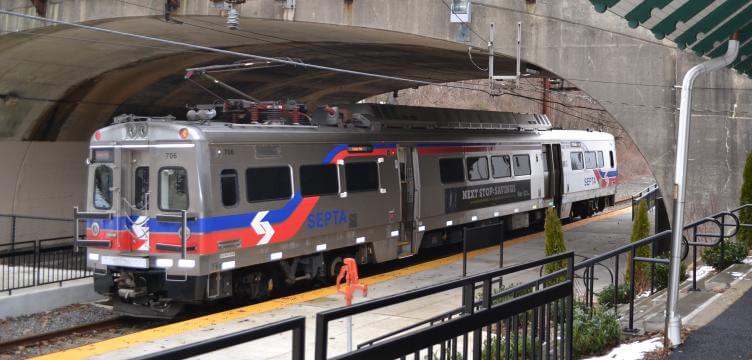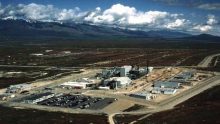
Southeastern Pennsylvania Transportation Authority (SEPTA) is installing an 8.75-MW lithium-ion (Li-ion) battery storage network that will reduce operating costs, emissions and energy intensity while enhancing service and helping stabilize the regional power grid, management announced January 21. SEPTA’s battery storage system will be one of the first commercial deployments in a public transportation setting, as well as one of the largest ¨behind the meter¨ installations in the U.S.
Regenerative braking technology will be used to store energy in Li-ion batteries installed at seven SEPTA substations. In addition to using stored energy to power trains as they accelerate from stations, the battery storage network will be able to provide emergency power for trains in the event of an outage, SEPTA highlights in a press release.
In addition, SEPTA may share in revenues generated by participating in regional ISO PJM Interconnection’s frequency regulation market, thereby helping maintain the balance between power supply and demand across the PJM grid, which spans 13 states and the District of Columbia. Viridity Energy is to provide energy market services, bidding the energy storage resources into PJM’s frequency regulation market.
RAIL LINES, SUSTAINABILITY AND LI-ION BATTERY STORAGE

SEPTA provides public rail, bus and trolley transportation services across five southeastern Pennsylvania counties, including Bucks and Philadelphia. Having completed a 1.8MW pilot battery project in 2014, the 8.75-Mw battery storage network will bring SEPTA’s total installed power storage capacity to more than 10MW.
The project requires no upfront capital expenditure on SEPTA’s part. Exelon Corp. subsidiary Constellation will fund, own and operate the battery storage network, which will be financed by a 20-year battery services agreement. France-based Saft is supplying the Li-ion batteries and associated hardware, software and services, with ABB responsible for engineering, procurement, construction (EPC) and operations services.
“As a competitive energy supplier, we aim to provide our customers with the best long-term economic and business solutions for how their energy is produced and supplied,” Constellation SVP of distributed energy Gary Fromer was quoted as saying. “This battery storage network, along with $26 million in guaranteed savings from efficiency improvements Constellation is implementing for SEPTA, will help SEPTA deliver on its budget and energy resiliency goals.”
“Our ground-breaking regenerative braking pilot at SEPTA proved that energy storage can be used by transit systems to create substantial cost savings, generate revenue, and contribute to sustainability goals,” added Viridity Energy CEO Mack Treece. “By expanding the pilot to a full deployment, SEPTA will demonstrate to rail transit systems throughout the world that energy storage can be a core part of their overall energy and sustainability strategy when paired with the right technologies and market expertise.”

Adding smart battery storage capacity helps realize and advances SEPTA’s sustainability goals and program, General Manager Jeffrey D. Knueppel pointed out. “SEPTA’s Sustainability Program is all about finding and deploying cutting-edge innovations to reduce costs in addition to improving environmental performance.
¨This project is right in that sustainability sweet spot, and we are pleased to partner with Constellation and Viridity in bringing it to market right here in the Philadelphia region, an emerging hub for innovative energy projects.”



